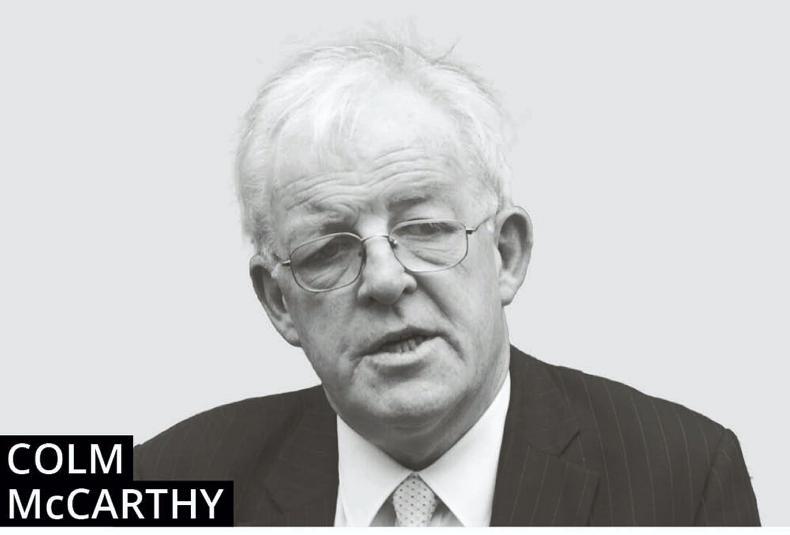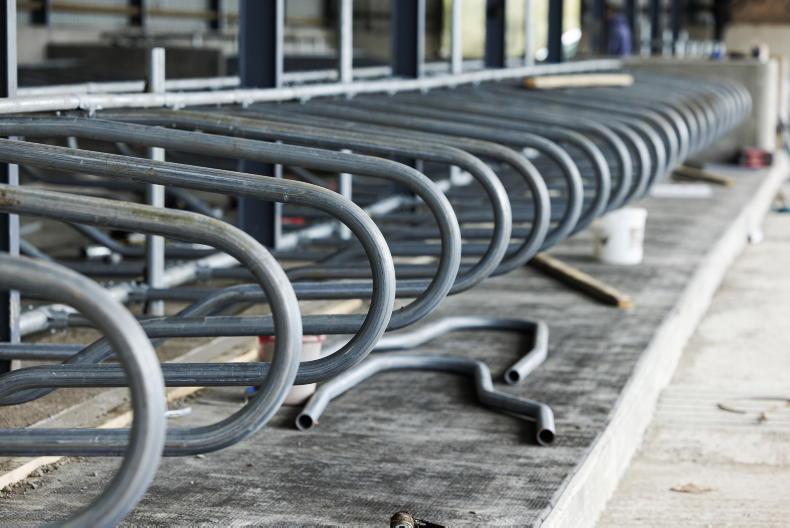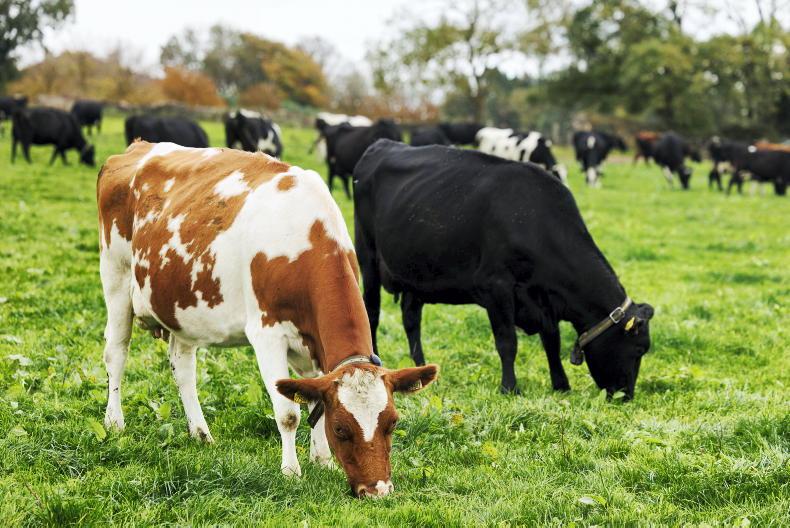When the new Government is formed, the priority will be managing the public health emergency. Economic recovery will be gradual – there has been a noticeable absence of talk about a V-shaped rebound in these last few weeks – but recovery could be derailed if there is a second outbreak of COVID-19 or a financial sector misadventure.
Government policy will need to be aware of all three possibilities
There are three possible financial misadventures. The Government itself could struggle to finance the huge budget deficits that are inevitable in the next few years, the banks could get overstretched, or there could be collapses in the non-bank financial sector. Government policy will need to be aware of all three possibilities.
The Government can borrow freely for now at low-interest cost, since the European Central Bank is committed to a huge programme of support for Eurozone bond markets. The ECB’s commitment came grudgingly and only after a hiccup in the Italian government bond market, but it seems secure through the end of 2020 and into next year. Whether ECB support can be counted on all the way through a long recovery remains to be seen. The member governments that bring deficits under control the quickest will have the least to fear.
The Government owns a majority of the shares in AIB and Irish Permanent, as well as a minority stake in Bank of Ireland
The Irish banks are better capitalised than many in Europe and have reduced their legacy of non-performing loans in recent years. But they will inevitably see rising provisions for bad debts and are being encouraged to offer forbearance to customers in trouble, including both business and mortgage borrowers. There is a limit to what their balance sheets will bear and excessive pressure from politicians to over-extend could result in weaker banks.
The Government owns a majority of the shares in AIB and Irish Permanent, as well as a minority stake in Bank of Ireland, so any taxpayer return from the last bail-out of the banks is threatened, should there be a need for another one.
It took over 20 years to pay off the bill for the collapse of PMPA in the 1980s
The non-bank sector contains two at-risk components; the insurance companies and the aircraft leasing specialists. Insurance companies hold substantial liquid assets, but these are in trust for policy holders, who pay premiums in advance to meet inevitable claims. Where they under-provide for claims, they go bust, and the general public ends up footing the bill through the Insurance Compensation Fund.
It took over 20 years to pay off the bill for the collapse of PMPA in the 1980s and there will be another surcharge on everyone’s premiums for decades to come, courtesy of Quinn Insurance. These companies are fragile institutions and have a limited capacity to be generous in claims settlement. They cannot pay out on risks they have not insured and for which they have not collected premiums to go into the claims reserve.
The state is itself an insurer
There will be disputes about business interruption, with the companies declining to pay unless the contract covered pandemic risks. There could also be claims under public and employer liability policies. People could allege that negligence by insured firms caused exposure to COVID-19 and lawyers in the United States are already organising lawsuits against retailers like Walmart.
The state is itself an insurer. The State Claims Agency, an offshoot of the National Treasury Management Agency (NTMA), handles any claims against the Government and its offshoots. Former head of the NTMA, Michael Somers, has warned that there will be many such claims in the years ahead by health service workers exposed to risk through inadequate provision of protective equipment, or from relatives of fatalities in nursing homes.
“Why was there no restriction on people going to and coming back from Cheltenham, or going to and coming back from northern Italy, and God alone knows what else?” Somers asked in the Sunday Business Post.
Aircraft leasing
Ireland is Europe’s principal location for the aircraft leasing business. Aircraft leasing companies are specialised banks. They borrow and lend – securitised lending, to be sure – but lending is their business. They typically hold more equity (less debt) against their lending assets than regular banks and they have been profitable in recent years, but they are among the principal casualties of the calamity in the aviation industry.
The assets of leasing companies are aircraft or loans collateralised with aircraft
Many of their airline customers cannot meet lease payments and are seeking bailouts from governments. Norwegian Air, a large customer of the leasing companies, has converted sums due into equity and others cannot meet interest owing to lenders.
The assets of leasing companies are aircraft or loans collateralised with aircraft. If aircraft values decline, the balance sheets of the leasing companies weaken. The Wall Street investment bank JP Morgan has estimated that aircraft values will decline by amounts ranging from 10% to 40% and the credit rating agencies have also been downgrading the debt instruments of leasing companies.
While the major Irish companies have adequate short-term liquidity, and in some cases strong shareholders, no credit institution can avoid problems when its customers, the airlines, are in turmoil.
Read more
Colm McCarthy: common sense needed
When the new Government is formed, the priority will be managing the public health emergency. Economic recovery will be gradual – there has been a noticeable absence of talk about a V-shaped rebound in these last few weeks – but recovery could be derailed if there is a second outbreak of COVID-19 or a financial sector misadventure.
Government policy will need to be aware of all three possibilities
There are three possible financial misadventures. The Government itself could struggle to finance the huge budget deficits that are inevitable in the next few years, the banks could get overstretched, or there could be collapses in the non-bank financial sector. Government policy will need to be aware of all three possibilities.
The Government can borrow freely for now at low-interest cost, since the European Central Bank is committed to a huge programme of support for Eurozone bond markets. The ECB’s commitment came grudgingly and only after a hiccup in the Italian government bond market, but it seems secure through the end of 2020 and into next year. Whether ECB support can be counted on all the way through a long recovery remains to be seen. The member governments that bring deficits under control the quickest will have the least to fear.
The Government owns a majority of the shares in AIB and Irish Permanent, as well as a minority stake in Bank of Ireland
The Irish banks are better capitalised than many in Europe and have reduced their legacy of non-performing loans in recent years. But they will inevitably see rising provisions for bad debts and are being encouraged to offer forbearance to customers in trouble, including both business and mortgage borrowers. There is a limit to what their balance sheets will bear and excessive pressure from politicians to over-extend could result in weaker banks.
The Government owns a majority of the shares in AIB and Irish Permanent, as well as a minority stake in Bank of Ireland, so any taxpayer return from the last bail-out of the banks is threatened, should there be a need for another one.
It took over 20 years to pay off the bill for the collapse of PMPA in the 1980s
The non-bank sector contains two at-risk components; the insurance companies and the aircraft leasing specialists. Insurance companies hold substantial liquid assets, but these are in trust for policy holders, who pay premiums in advance to meet inevitable claims. Where they under-provide for claims, they go bust, and the general public ends up footing the bill through the Insurance Compensation Fund.
It took over 20 years to pay off the bill for the collapse of PMPA in the 1980s and there will be another surcharge on everyone’s premiums for decades to come, courtesy of Quinn Insurance. These companies are fragile institutions and have a limited capacity to be generous in claims settlement. They cannot pay out on risks they have not insured and for which they have not collected premiums to go into the claims reserve.
The state is itself an insurer
There will be disputes about business interruption, with the companies declining to pay unless the contract covered pandemic risks. There could also be claims under public and employer liability policies. People could allege that negligence by insured firms caused exposure to COVID-19 and lawyers in the United States are already organising lawsuits against retailers like Walmart.
The state is itself an insurer. The State Claims Agency, an offshoot of the National Treasury Management Agency (NTMA), handles any claims against the Government and its offshoots. Former head of the NTMA, Michael Somers, has warned that there will be many such claims in the years ahead by health service workers exposed to risk through inadequate provision of protective equipment, or from relatives of fatalities in nursing homes.
“Why was there no restriction on people going to and coming back from Cheltenham, or going to and coming back from northern Italy, and God alone knows what else?” Somers asked in the Sunday Business Post.
Aircraft leasing
Ireland is Europe’s principal location for the aircraft leasing business. Aircraft leasing companies are specialised banks. They borrow and lend – securitised lending, to be sure – but lending is their business. They typically hold more equity (less debt) against their lending assets than regular banks and they have been profitable in recent years, but they are among the principal casualties of the calamity in the aviation industry.
The assets of leasing companies are aircraft or loans collateralised with aircraft
Many of their airline customers cannot meet lease payments and are seeking bailouts from governments. Norwegian Air, a large customer of the leasing companies, has converted sums due into equity and others cannot meet interest owing to lenders.
The assets of leasing companies are aircraft or loans collateralised with aircraft. If aircraft values decline, the balance sheets of the leasing companies weaken. The Wall Street investment bank JP Morgan has estimated that aircraft values will decline by amounts ranging from 10% to 40% and the credit rating agencies have also been downgrading the debt instruments of leasing companies.
While the major Irish companies have adequate short-term liquidity, and in some cases strong shareholders, no credit institution can avoid problems when its customers, the airlines, are in turmoil.
Read more
Colm McCarthy: common sense needed










SHARING OPTIONS